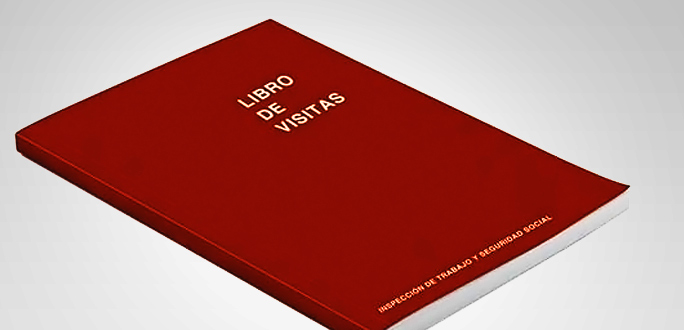After my supposed holidays (all business owner’s nightmare trying to get time off to clear the cobwebs away) and quarterly taxes this month, I am catching up on my writing so this article is reaching you a little later than it should.
Since last month, business owners no longer have the obligation to have the “Libro de visitas” or Work Inspection Book at their premises. This book is used by Work Inspectors for Social Security as they carry out their duties, checking the legalities of employees in the work place and up until recently, it was an obligatory material to have onsite either in its common paper format or in the newer digital version. Social Security have now seen fit to release business owners from this additional burden and forego the purchase of this book.
The libro de visitas first came into existence 110 years ago when the Work Inspection Department for Social Security was created as a method to trace all inspections carried out by its enforcers. With each visit, the inspector would request the book and make their observations; a copy would be left with the business owner and the other removed by the inspector for Social Security official files. From there, the business owner may receive a summons to provide additional paperwork at Social Security offices to determine whether all employees are properly regulated on the system and that salaries, monthly social fees etc are all up-to-date.
According to new regulations, all inspectors and sub-inspectors when carrying out their duties must fill in a new form with each visit, providing copy for the business owner that must be preserved for a minimum of five years. This form must be issued in a bilingual version in those Autonomous Regions where another language is officially recognized.
These changes have come about gradually as the first amendment happened back in 2013 when inspectors were required to use new technologies for labour related inspections. When new regulations were approved, the traditional paper libro de visitas was substituted for a digital version and now these regulations have removed this obligation altogether.
If you have an existing business though, don’t be too quick in throwing the book out as you should keep it on file!


